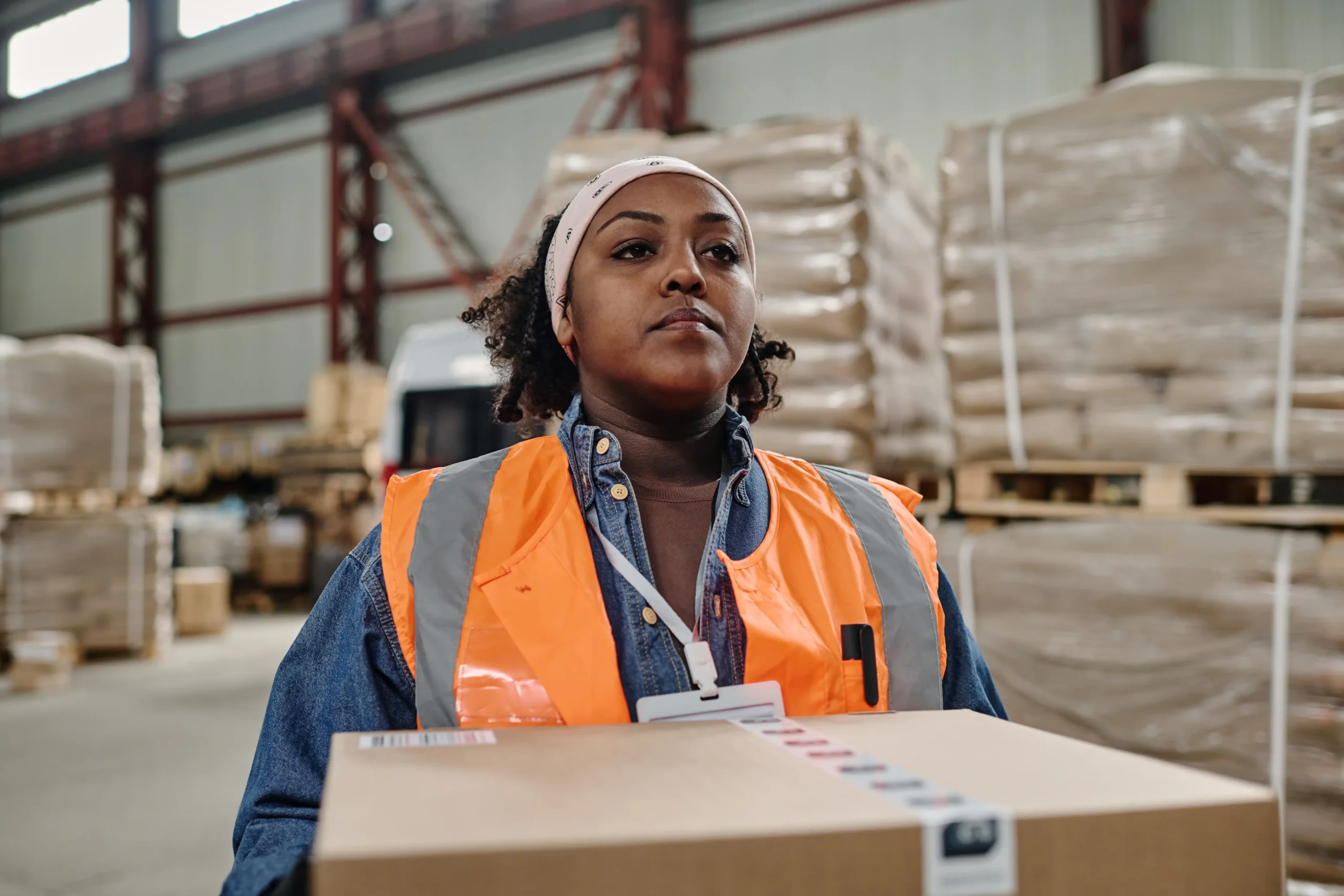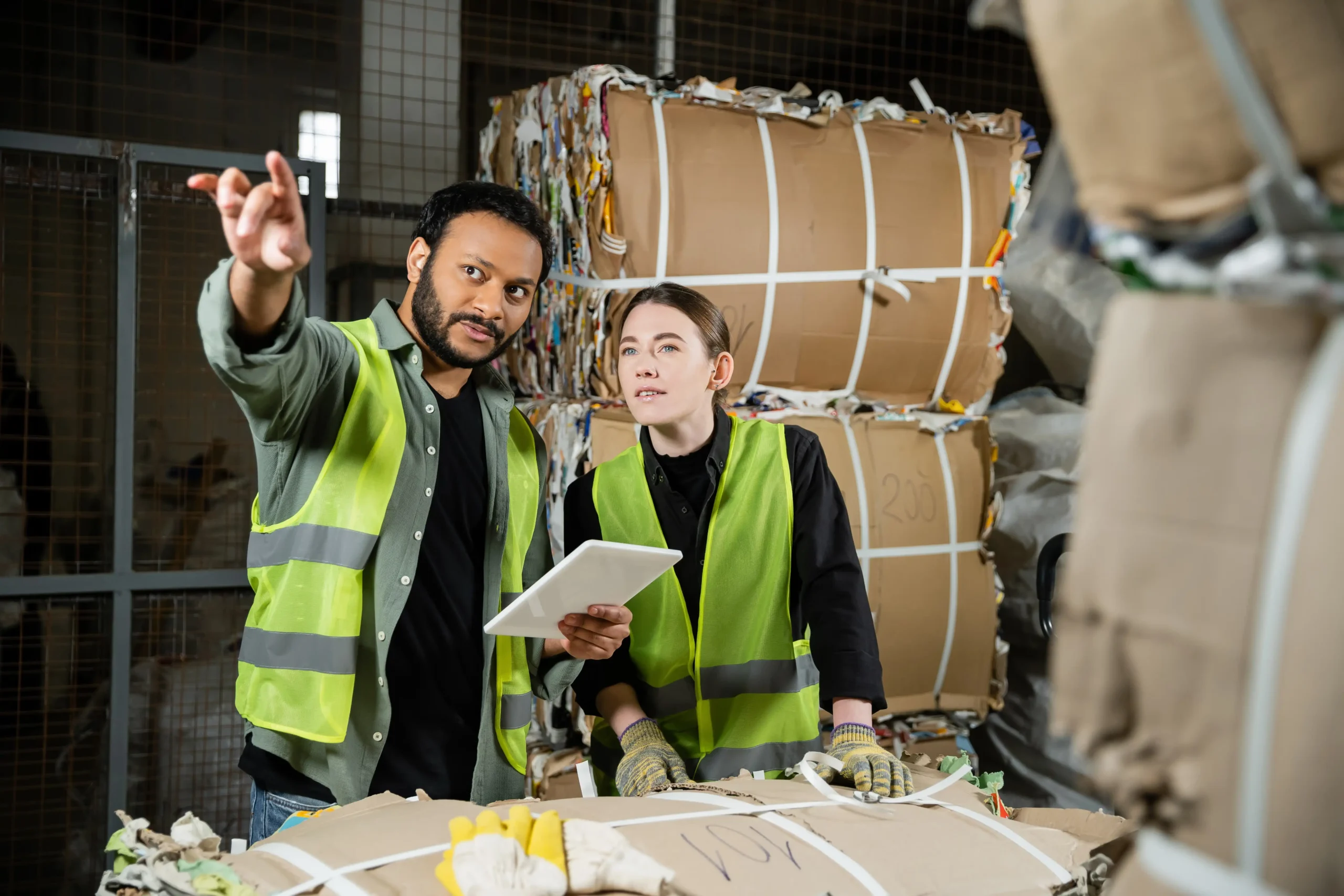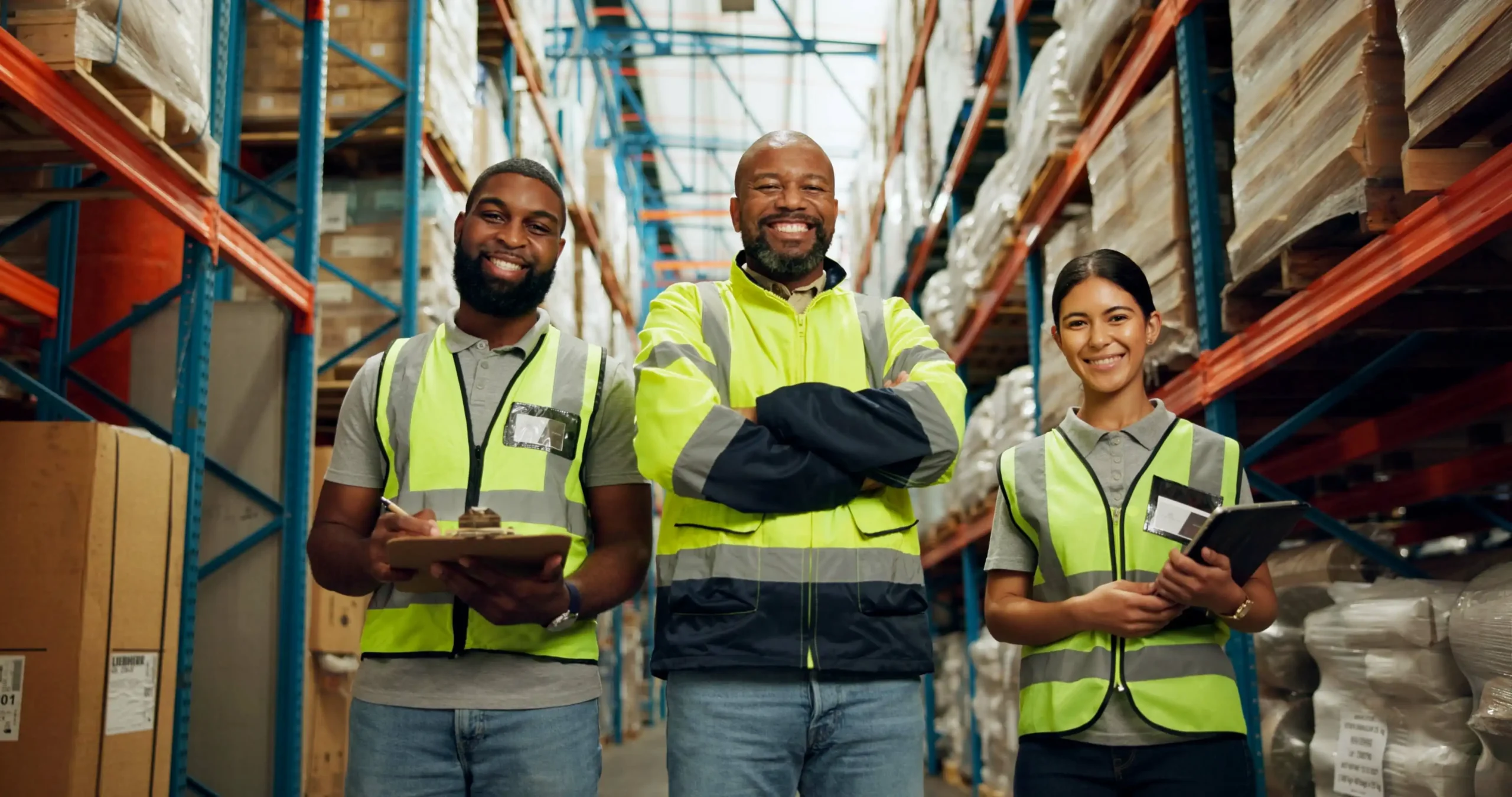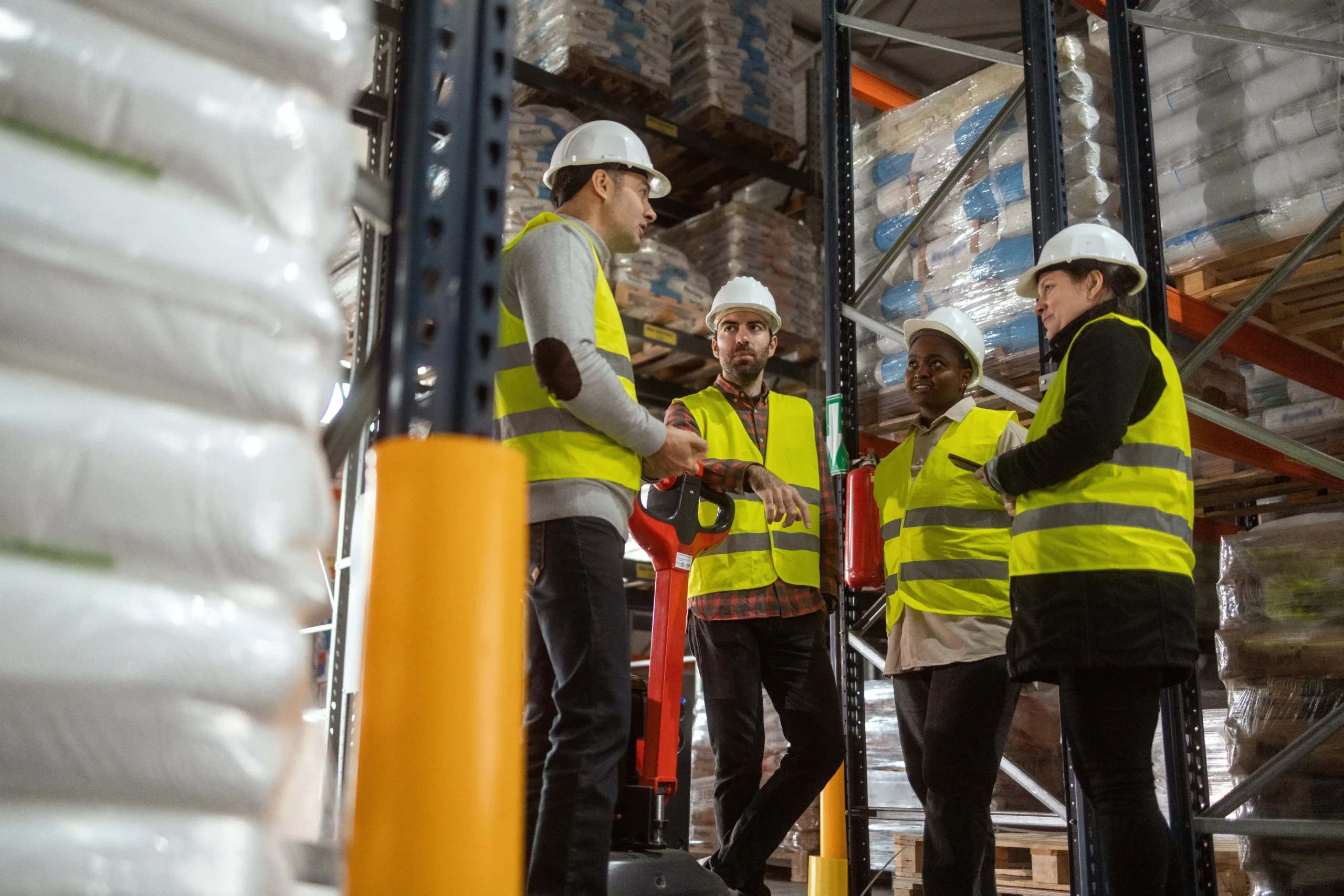Table of Contents
ToggleAt its core, sustainability in logistics refers to the implementation of eco-friendly practices in the supply chain to reduce environmental impact, improve efficiency, and create long-term business viability. Logistics covers all activities involved in moving goods—from procurement and transportation to warehousing and packaging.
By embracing sustainability, companies can minimize their carbon footprint while remaining competitive in an increasingly eco-conscious market. As the president of Tri-Link FTZ, I’ve witnessed the shift toward sustainable logistics firsthand.
Over the past three decades, our clients have increasingly prioritized solutions that align with environmental goals. These efforts aren’t just ethical—they’re strategic.
Today, embracing sustainable logistics is no longer optional; it’s essential for businesses looking to thrive in a resource-conscious world.

Sustainability in logistics is a vital component of modern commerce. Beyond reducing emissions, it offers significant economic and reputational benefits.
When businesses adopt sustainable practices, they help combat climate change while simultaneously improving efficiency. For instance, transportation is a major contributor to carbon emissions, with logistics accounting for nearly 24% of global CO₂ emissions.
Without proactive measures, this number could rise to 40% by 2050. Companies that address these issues now can avoid regulatory penalties and build trust with consumers.
At Tri-Link FTZ, we’ve seen firsthand how sustainable logistics enhances brand loyalty. Customers today want to support businesses that share their values.
According to a recent survey, 66% of consumers consider sustainability when making purchasing decisions. Additionally, adopting eco-friendly practices saves money over time.
Optimizing routes, reducing fuel consumption, and streamlining inventory management are just a few ways companies can cut costs while protecting the planet.
Sustainability in logistics touches on three key areas: environmental, social, and economic impacts. Environmentally, logistics operations can lead to deforestation, resource depletion, and greenhouse gas emissions.
Socially, the industry’s impact on communities—including job creation and ethical practices—matters immensely. Economically, sustainable logistics ensures long-term profitability by cutting waste and improving efficiency.
For example, we work with clients to implement circular economy models that promote recycling and reuse. This reduces waste and extends the life of resources.
Socially, Tri-Link FTZ prioritizes ethical labor practices, ensuring that our operations benefit not only our clients but also the communities in which we operate. Economically, sustainable practices lead to greater cost savings for our clients, making logistics both responsible and profitable.
Achieving sustainability in logistics involves focusing on several core components. First, transportation must be optimized to reduce emissions.
This includes adopting electric vehicles, optimizing delivery routes, and leveraging shared logistics solutions. At Tri-Link FTZ, we use advanced route-planning tools that minimize mileage, cutting both costs and carbon output.
Second, warehousing plays a critical role. Energy-efficient facilities with renewable energy sources like solar panels reduce environmental impact.
Our foreign trade zones incorporate green designs, such as LED lighting and energy-efficient HVAC systems, to lower energy consumption. Additionally, sustainable packaging—using recyclable and biodegradable materials—reduces waste and appeals to eco-conscious consumers.
Reverse logistics is another key component. By promoting recycling, repairing, and refurbishing, businesses can create a circular economy.
This model not only minimizes waste but also adds value to returned products. Finally, data-driven tools like AI and IoT help businesses monitor performance, predict demand, and identify inefficiencies, making logistics operations more sustainable.

Transportation is one of the largest contributors to logistics-related emissions. At Tri-Link FTZ, we help clients implement strategies to cut these emissions effectively.
Optimizing delivery routes is a simple yet impactful method. Advanced software analyzes traffic patterns and delivery schedules to find the most fuel-efficient paths.
Switching to electric or hybrid vehicles is another transformative step. For example, we’ve partnered with clients to integrate EV fleets, significantly reducing their carbon footprints.
Additionally, alternative fuels like biofuel and hydrogen are becoming viable options for larger vehicles. Driver training also plays a role.
Educating drivers on fuel-saving techniques, such as maintaining steady speeds, can further reduce emissions. Finally, collaborative shipping allows multiple businesses to share transportation resources.
This maximizes vehicle capacity and minimizes the number of trips required, saving fuel and reducing costs.
Warehousing is a critical aspect of sustainability in logistics. Energy-efficient designs, such as smart lighting and HVAC systems, can drastically reduce energy consumption.
At Tri-Link FTZ, we’ve implemented renewable energy solutions, including solar-powered facilities, across our foreign trade zones. Inventory optimization also plays a significant role.
Using AI, businesses can predict demand more accurately, reducing overstock and minimizing waste. For instance, predictive analytics allow us to help clients maintain just-in-time inventory levels, ensuring resources are used efficiently.
Automated storage and retrieval systems (ASRS) streamline operations, further reducing energy use. Local warehousing is another strategy we champion.
By placing distribution centers closer to key markets, businesses can reduce transportation requirements, cutting both costs and emissions. These approaches make warehousing an essential pillar of sustainable logistics. Read more here.
Packaging and waste management are vital to achieving sustainability in logistics. Over the years, we’ve worked with clients to transition from traditional packaging materials to eco-friendly options like biodegradable plastics and recyclable cardboard.
This shift not only reduces waste but also appeals to environmentally conscious consumers. Minimizing over-packaging is another critical step.
Excessive packaging not only increases costs but also contributes to unnecessary waste. At Tri-Link FTZ, we conduct regular audits to identify inefficiencies in packaging processes and recommend sustainable alternatives.
Additionally, we promote circular economy models where packaging materials are reused or recycled within the supply chain. Customer education is equally important.
Encouraging end-users to recycle or return packaging materials ensures these efforts have a lasting impact. Together, these strategies create a more sustainable logistics ecosystem.

Technology is revolutionizing sustainability in logistics. Artificial intelligence (AI) is a game-changer, helping businesses optimize everything from inventory levels to transportation routes.
At Tri-Link FTZ, we use AI-driven tools to forecast demand, streamline supply chains, and reduce waste. The Internet of Things (IoT) enhances operational visibility.
Smart sensors monitor energy consumption, identify inefficiencies, and provide real-time data for better decision-making. Blockchain technology ensures transparency across the supply chain, enabling businesses to track the carbon footprint of their operations.
Autonomous vehicles and drones are also emerging as sustainable solutions for last-mile deliveries. These technologies not only reduce emissions but also improve efficiency.
By integrating these innovations, Tri-Link FTZ ensures our clients stay ahead in the sustainability game.
Renewable energy is a cornerstone of sustainable logistics. At Tri-Link FTZ, we’ve incorporated solar panels and energy-efficient infrastructure into many of our foreign trade zones.
These efforts not only reduce greenhouse gas emissions but also lower energy costs for our clients. Energy storage solutions, such as batteries, maximize the use of renewable power.
Partnering with green energy suppliers ensures our facilities remain environmentally friendly. Additionally, we encourage clients to adopt similar practices, such as installing EV charging stations at their facilities.
Energy audits are another essential tool. By regularly assessing energy use, businesses can identify areas for improvement and transition away from non-renewable sources.
These strategies make renewable energy an integral part of sustainable logistics.
One of the most effective ways to achieve sustainability in logistics is by adopting alternative vehicles and fuel technologies. At Tri-Link FTZ, we’ve worked with clients to integrate electric and hybrid vehicles into their fleets.
These vehicles are not only cleaner but also more cost-efficient in the long run. For instance, electric trucks significantly reduce emissions during last-mile deliveries, a critical component of the logistics process.
Hydrogen fuel technology is another promising solution. Hydrogen-powered vehicles, already deployed in countries like Japan and Germany, are ideal for long-haul transportation.
Biofuels, derived from renewable sources such as vegetable oils and animal fats, offer another sustainable alternative. We’ve helped several partners explore these options, tailoring solutions to meet their unique operational needs.
Moreover, the logistics industry can benefit greatly from regenerative braking systems in hybrid and electric vehicles. This technology captures energy during braking and reuses it, further enhancing efficiency.
By adopting these advanced vehicle technologies, companies not only reduce their carbon footprint but also position themselves as leaders in sustainable logistics. Read more here.

The concept of a circular economy is redefining the way businesses manage resources. Reverse logistics, a key component of this model, focuses on moving goods “upstream” to reuse, repair, or recycle them.
At Tri-Link FTZ, we’ve implemented reverse logistics strategies for clients across various industries, ensuring products and materials remain in use for as long as possible. Take the example of a client in the electronics sector.
By introducing a program to refurbish and resell returned items, they reduced waste and created a new revenue stream. This approach aligns with the principles of sustainability in logistics by extending the lifecycle of products and minimizing resource depletion.
Waste management also plays a critical role in the circular economy. By incorporating reverse logistics into our operations, we help businesses extract value from discarded materials.
For example, packaging can often be recycled or repurposed into new materials, creating a closed-loop system that reduces waste and enhances efficiency.
Achieving sustainability in logistics is not just about technology and strategy—it also requires a cultural shift within organizations. At Tri-Link FTZ, we emphasize employee engagement as a cornerstone of sustainable practices.
Training programs educate employees about the environmental impact of logistics activities and empower them to contribute innovative solutions. Employee engagement fosters a sense of ownership and accountability, making green initiatives more successful.
For example, one of our clients implemented an employee-led waste reduction program that significantly improved their sustainability metrics. By encouraging ideas from within, they were able to identify and address inefficiencies in their supply chain.
Regular sustainability audits are equally essential. These audits evaluate key aspects of logistics operations, such as energy consumption, waste generation, and material use.
At Tri-Link FTZ, we conduct comprehensive audits for our clients, helping them set measurable sustainability goals and develop actionable plans. These efforts ensure continuous improvement and demonstrate a commitment to environmental stewardship.
Looking ahead, sustainability in logistics is poised to transform the industry. Innovations such as autonomous vehicles, AI-powered supply chains, and renewable energy technologies will play an increasingly prominent role.
At Tri-Link FTZ, we’re proud to be at the forefront of this transformation, leveraging over 35 years of experience to guide our clients toward a greener future.
The journey toward sustainability is not without challenges, but the rewards—reduced costs, enhanced brand loyalty, and a healthier planet—are well worth the effort. By adopting sustainable logistics practices today, businesses can secure their place as leaders in a rapidly changing world.
The logistics industry is undergoing a profound shift toward sustainability, driven by environmental imperatives, consumer demand, and technological innovation. At Tri-Link FTZ, we’re committed to helping businesses navigate this transition with customized solutions that align with their goals.
If you’re ready to embrace sustainability in logistics, contact us today to learn how we can help you reduce your carbon footprint, optimize your operations, and achieve long-term success.
Share this article
We have other resources available upon request as well as one-on-one support and personalized answers, just like our services.
Simply contact us anytime and we’ll get back to you to answer your questions and provide meaningful answers that show you how Tri-Link supports your logistics, reduces costs, and accelerates efficiency.
Tri-Link delivers exceptional FTZ and 3PL services tailored to your global trade needs.
Our solutions combine innovation, quality, and efficiency to exceed your expectations and meet your specific requirements.